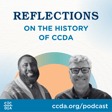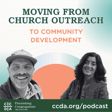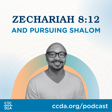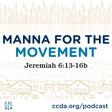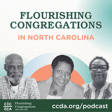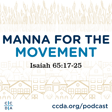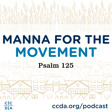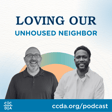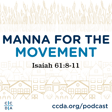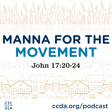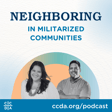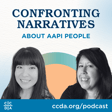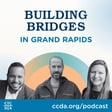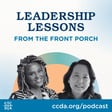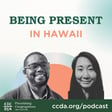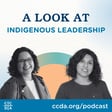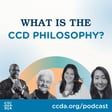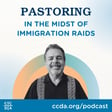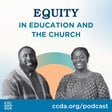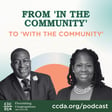
What are Cohorts? And Why Do They Matter?
Turan De’Angelo Rush is joined by Bethany Rivera Molinar and Jeff Biddle to discuss CCDA’s leadership cohorts. They unpack what cohorts are and why they’re important; they also share their experiences in their cohorts, the incredible relationships they’ve formed, and the leadership lessons they are still drawing on today.
CCDA’s newest cohort, Cohort 9, is now accepting applications! This cohort is for Gen Z leaders in the Southeastern U.S. Learn more and apply at ccda.org/cohort.
Turan De’Angelo Rush is the founding COO of the Midian Leadership Project, Inc., a sports-based community development nonprofit in Charleston, WV, an Evangelist with New Hope Community Church in Charleston, and the Director of Sports Science and Nutrition for the Capital High School football team. He played football at Eastern Michigan University, where he was team captain and earned a BA in communications with a minor in special education. He holds a master's degree in Sports Science from West Virginia State University, and is pursuing his PH.D in sports psychology from Kairos University, where his research focuses on the trauma-healing power of team sport participation.
Bethany Rivera Molinar is a fronteriza Chicana living and working in El Paso, Texas, about a mile from the international border line of the United States and Mexico. She is the Executive Director of Ciudad Nueva Community Outreach, a holistic, asset-based, Christian community development nonprofit organization walking alongside their neighbors to develop youth, support families, equip leaders, and strengthen community in downtown-central El Paso. Bethany is deeply passionate for Ciudad Nueva to be a place where community work unfolds and community members are actively engaged and accessing their gifts, skills, and resources to collectively lead towards a vibrant and thriving community. Along with her team and community, this passion has driven the work that she has done through Ciudad Nueva for over ten years. Bethany serves as Chair for the board of the national Christian Community Development Association (CCDA) as well as other local boards. Bethany earned both Masters of Divinity & Masters of Social Work degrees from Baylor University. In 2023, President Obama selected Bethany as one of 100 Leaders from across the United States for his inaugural Obama Leaders USA program. Bethany serves with prophetic strength and innovative leadership within local, regional, and national women of color faith circles. When not doing all of the above, Bethany enjoys spending time with her husband Adrian and their three little ones, running, urban gardening, and pursuing the crafty arts.
Rev. Dr. Jeff Biddle, Jr. is the founding pastor of New Hope Community Church and the co-founder of the Midian Leadership Project. He holds a BA in Economics from Harvard University, an M.Div from Trinity Evangelical Divinity School, and his doctorate from Palmer Seminary, where his thesis focused on sports, faith, and community leadership development among young people affected by the school-to-prison pipeline. He is the coauthor of Playing For The City: The Power of Sports for Christian Community Development.
Connect with CCDA on Instagram, Twitter, Facebook, and LinkedIn. Follow CCDA on YouTube.
